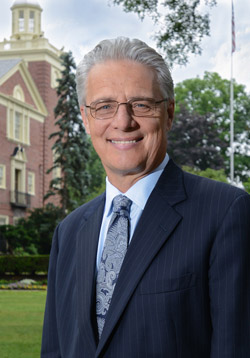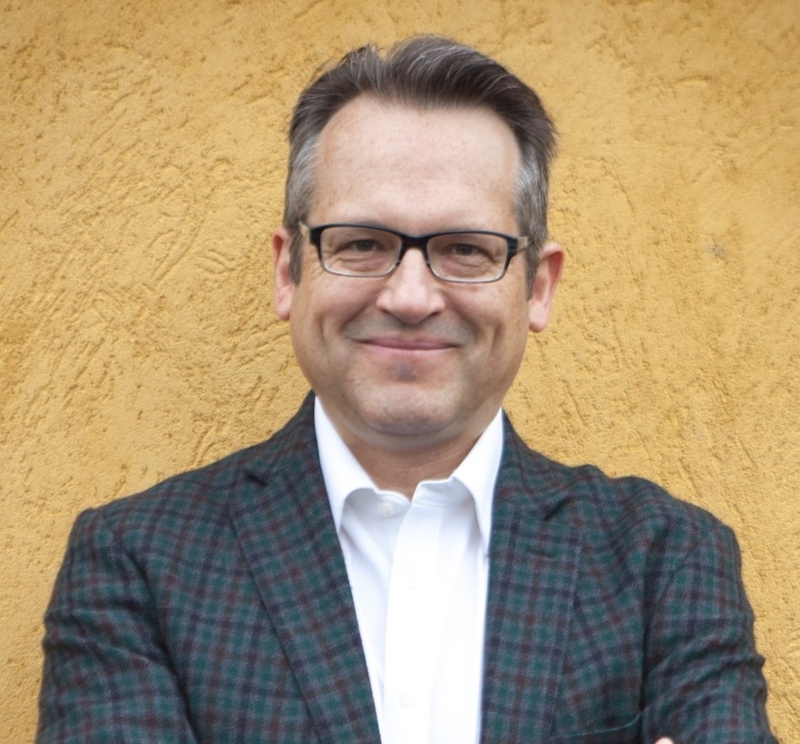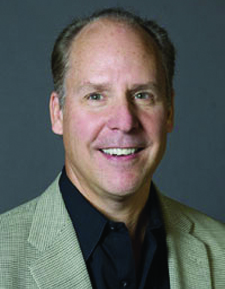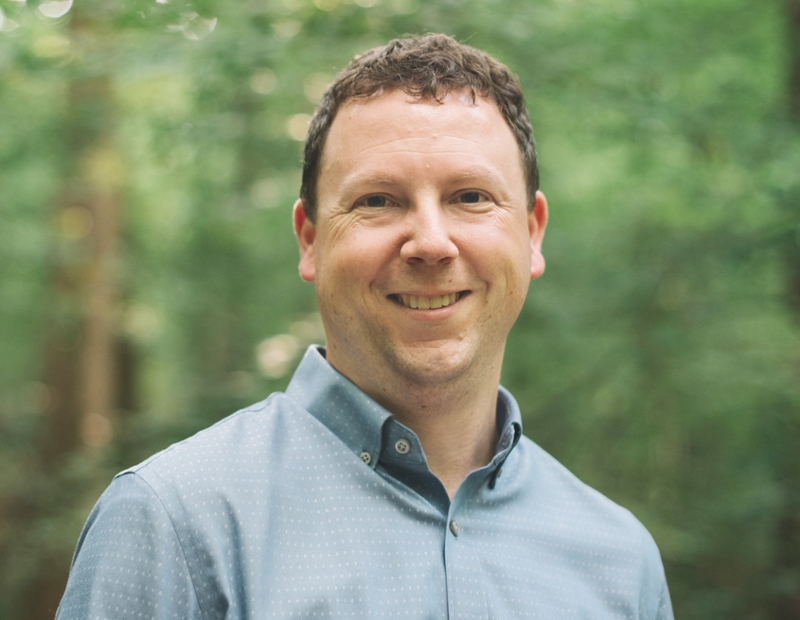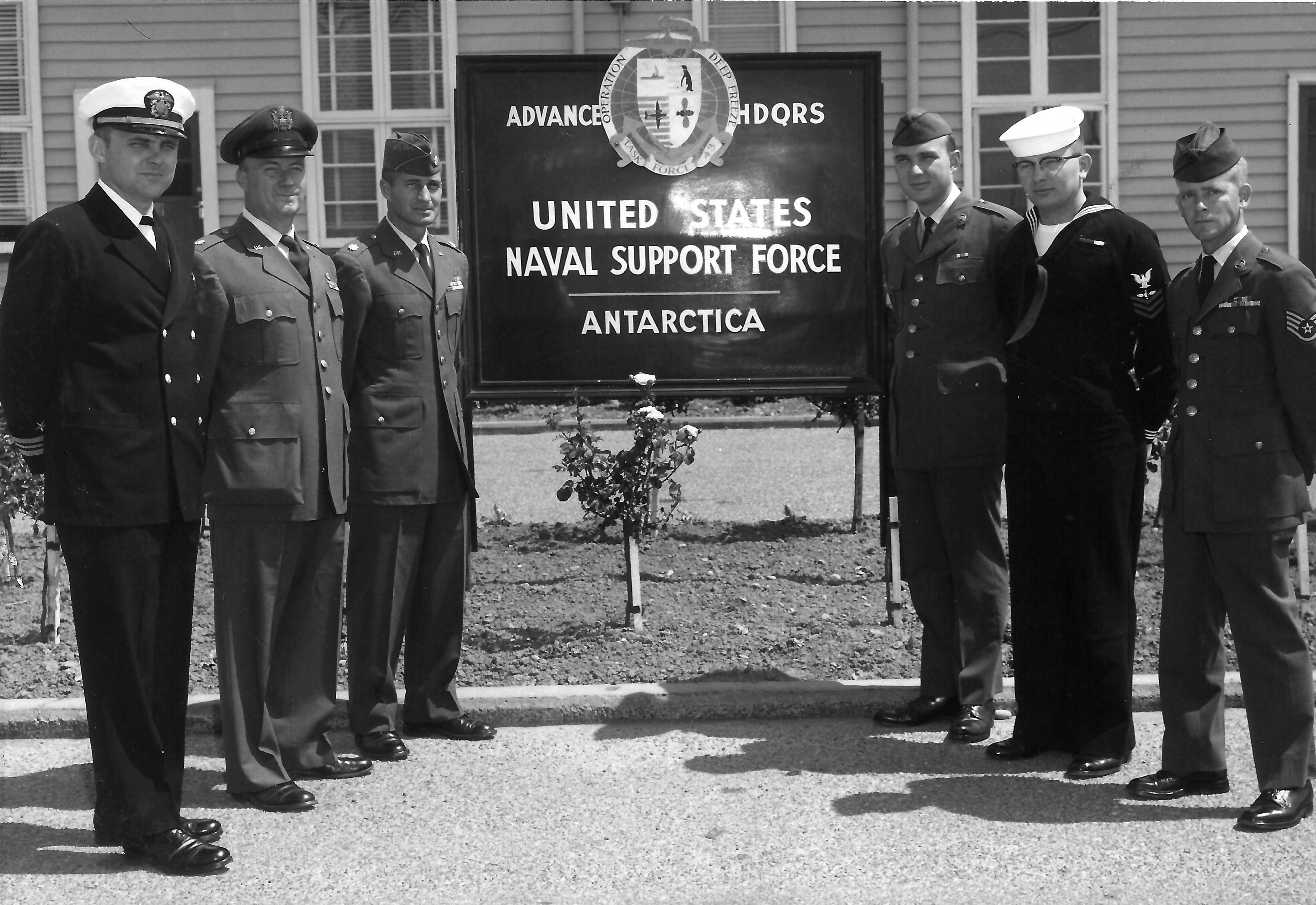![]()
By Alivia Tagliaferri
America’s Post War Navy
The war was won. Now, thousands of America’s soldiers, sailors and Marines who valiantly fought in the Second World War were coming home to their families, entering the job force or furthering their education, thanks to hard-earned GI Bill benefits.
The exodus of experienced officers, especially naval aviators, was especially acute for the United States Navy, and it created a quandary. They had too few experienced pilots in their ranks, and not even the number of midshipmen currently training at the Naval Academy could fill the void. Secretary of the Navy John Sullivan realized his branch needed to act quickly, so he tasked Rear Adm. James Holloway Jr., assistant chief of naval personnel, to spearhead an effort to recruit, train and retain more officers to meet the Navy’s future needs. Holloway and his cohorts soon came up with a novel plan: The Naval Aviation College Program.
Known as the “Holloway Plan,” the program offered new enlistees two years of college, paid for by the Navy, followed by naval flight training in Pensacola, Fla. During their first two years of college, the enlistees would be known as “airmen recruits” and later appointed as aviation midshipmen — officer candidates — to parallel the career path of those enrolled at the Naval Academy. However, unlike midshipmen at the academy, these enlistees would not need the usual (and hard to come by) congressional appointment as a requirement for entry. If the aviation midshipman successfully completed flight training, the officer candidate would “get his wings” — the vaunted Navy Wings of Gold — and a commission in the U.S. Navy as an ensign, as well as two additional years in college to complete his education. In exchange, the recruit would agree to a minimum three-year service commitment. The goal was to fill the Navy’s pipeline with educated and well-trained pilots who would continue their military careers for twenty to thirty years. In August of 1946, nearly one year after Victory Day, Congress approved it unanimously.
From the Holloway Plan to the Hallways of Williamsport Dickinson Seminary Junior College
For Charles Zilch ’48, coming of age during World War II in Fort Littleton, Pa., a frontier fort along the “Forbes Trail” — a historic military roadway built during the French and Indian War, there was only one career path he would ever consider: becoming a pilot in the Navy.
“I think every boy in my high school class decided we were going to enlist as soon as we got our high school diploma,” reflects Zilch, now in his late eighties, “and that’s precisely what happened.”
Zilch decided to enlist before he even graduated.
“My dad wanted me to go to Penn State and major in civil engineering, but I had no interest in that. I wanted to be a pilot. The Navy had put up a poster in the local post office that said, ‘Get a $35,000 Education Free. Become a Naval Aviator!’ So, I went to the recruiting office in Pittsburgh, took two tests, passed them both and became a member of the United States Navy. I graduated high school a month later.”
Zilch was sent a letter by the Department of the Navy instructing him to apply to college and provided all necessary documentation of his participation in the Naval Aviation College Program, as well as confirmation of the tests he passed and his qualifications for college.
After applying to several prestigious Ivy League schools, all of which were awash in post-war applicants, Zilch acted upon a suggestion by his hometown minister to apply to Williamsport Dickinson Seminary and Junior College (WDSJC) and was accepted.
Paul Leinbach ’48, a high school senior from Woolrich, Pa., also became intrigued by the Navy’s invitation, via a promotional leaflet, to become an aviation midshipmen.
Inspired by his brother who flew for Pan American Airways during the war — one of the airlines that contributed pilots and planes to the war effort — and incentivized by the benefits of the Holloway program, including free tuition and a stipend of $50 per month for books and such, Leinbach applied to WDSJC, the alma mater of his mother and brother, preferring its proximity to home. He, too, was accepted.
The Lycoming Experience
Ninety-eight years after the Williamsport Academy for the Education of Youth was purchased and repurposed as Williamsport Dickinson Seminary, and twenty-five years after it became an accredited junior college, WDSJC became home to five naval airmen recruits who would begin their collegiate and Naval careers in Lycoming Valley.
Studying among Zilch and Leinbach were Frank Toy ’48 from Riverside, N.J.; Robert Goodman ’48 from Reading, Pa.; and Don Hile ’48 from State College, Pa.
The junior college was no stranger to military service members. In fact, it boasted several college military programs and also became a finishing school for WWII veterans who enlisted before finishing high school, providing them the opportunity to earn their GED diploma.
Zilch, Leinbach and their fellow airmen recruits were required by their naval contract to prepare for an engineering career, so they concentrated their course-load on math and science classes.
Zilch remembers his time at WDSJC fondly. “I don’t know if you could ask for a better environment. There were a lot of good people at the school. A lot of outstanding teachers,” he recalls. Zilch shares that his physics class — one of his favorite classes — presided by Professor Babcock, was often crowded to capacity, even over-capacity, and students who didn’t arrive early enough for a seat had to stand. “I bet that doesn’t happen anymore!” he laughs.
For Leinbach, J. Milton Skeath, Ph.D., professor of psychology, stands out in his mind, as the former credits the latter with stimulating his interest in the subject and inspiring him to later major in psychology at Bucknell University.
Leinbach and Toy would become roommates in the dormitory known as “Angel Factory.” “Dickinson Junior College provided a very good experience,” shares Leinbach. “I learned much and made friends. My attention was on my studies, so I was not the life of the party.”
Zilch initially lived in the dormitory and according to him, there was only one problem: dinner dress code. “It was required that we had to eat dinner every night with a coat and tie on. The women, too, were required to be dressed up for dinner. We would sit eight people at each table there in the dining room on campus. Being a country boy, I had only one coat. So whenever it got soiled and I had to take it downtown to be dry-cleaned, I had to miss supper because I couldn’t meet the dress code.”
The experience would serve Zilch well in the Navy. “They were teaching us more than academics — we were learning the social aspects of life. Later, when I went on active duty, that was one of the first things the Navy trained us in as midshipmen — military decorum and social graces — how to act overseas when invited to dinner, what silverware to use, et cetera. We were representing the country and they didn’t want us to embarrass the United States.”
One place Zilch didn’t have to worry about attire was the football field — the domain of head coach T. Sherman Stanford, class of ’32, who also enforced the team’s code of conduct: no profanity and no “ugly talk” were allowed on or off the field.
Zilch vividly recalls the 1947 junior varsity game against West Point played at the United States Military Academy. “We stayed overnight and played the plebes (freshman) at Army Stadium the next day.” The score was 53-13. “We didn't feel defeated, but we lost big time.”
This memory serves as an emotional catalyst for Zilch. “A lot of the West Point cadets went on to fight in Korea.” He surmises that some of those vibrant young men they challenged on the football field that day were later felled by combat or the bitter cold in Korea. “I’m afraid a lot of young men gave everything. And I’m not sure to this day whether it's all appreciated. A lot of Americans do appreciate it, but who knows.”
In 1948, Zilch and his airmen recruit colleagues graduated from WDSJC. He, Leinbach and Toy would continue on to flight school in Pensacola as aviation midshipmen. While the original Holloway Plan called for the midshipmen to spend a year on the fleet as ensigns after flight training, then return to the Naval Academy to study and graduate with a degree in electrical engineering, the Korean War stopped that plan.
The Flying Midshipmen
The Korean War broke several traditions. It was the first war of the 20th century the United States entered without a declaration of war by Congress (rather, troops were committed by executive use of military force) and second, it mobilized large numbers of Reservists to meet the need for organized, trained personnel on short notice.
Many of the Navy’s new aviation midshipmen, fresh out of flight school and newly assigned on fleets, were called into action to meet the overnight demand for aviators. It would be the first time in one hundred years since the Mexican-American War of 1846 that midshipmen would fight and die in combat.
As a newly commissioned officer — receiving his wings on February 10, 1950 — Zilch, now an ensign, was stationed with the Atlantic Fleet. Fortunately, he would not experience the horrors of combat. But he knows by heart the stories of midshipmen who served in combat heroically. And no one stands out more than Jesse Brown, the Navy’s first African-American aviator, and his wingman, Thomas Hudner.
Brown, originally from Mississippi, attended The Ohio State University like his childhood hero, Jesse Owens, both overcoming racial segregation and prejudices. He enlisted in the U.S. Navy in 1946 and became an aviation midshipmen, earning his wings in October 1948. “Jesse Brown was one of our great ones,” shares Zilch. “How that man ever got through college and flight training, I haven’t a clue. He must have been one outstanding, dogged and determined officer.”
Brown was assigned to Fighter Squadron 32 as an ensign, or junior officer, and deployed to Korea in 1950 aboard the USS Leyte. He flew 20 combat missions from October to early December. On December 4, 1950, Brown was part of a mission to support U.S. Marine ground troops trapped by Chinese forces at the Chosin Reservoir when his aircraft came under small arms fire. He crash-landed on a remote mountaintop and became trapped under the wreckage. His wingman, Hudner, attempted to rescue Brown by intentionally crash-landing his aircraft and running over to his side to try to free him from the wreckage. But Brown’s conditioned worsened. Slipping in and out of consciousness, he asked Hudner to tell his wife, Daisy, he loved her. Brown was unable to be rescued. He perished in the bitter cold and became the first African-American officer killed in Korea. He was awarded the Distinguished Flying Cross, the Purple Heart Medal and the Air Medal. Hudner was later awarded the Medal of Honor, the military’s highest award for valor, for his rescue attempt.
Zilch also shares the story of midshipmen who were part of Attack Squadron 195, an attack squadron that would serve with distinction in Korea. The squadron had one mission: destroy enemy targets. On May 1, 1951, the squadron became known as the “Dambusters” after successfully torpedoing the Hwachon Dam, blocking the advance of Communist troops and disabling the enemy’s control of water levels.
So, it came as a huge shock to Zilch and all of the former aviation midshipmen when they found out upon separating from the Navy that their two years of time served on active duty as midshipmen would not count toward service pay, longevity and retirement purposes — i.e. those two years were egregiously not part of their computation. “We had midshipmen killed, midshipmen wounded. I couldn’t believe it.”
In 1969, a handful of former aviation midshipmen formed the Flying Midshipmen Association and set out to correct the record by lobbying Congress. They were as successful as lobbying as they were as midshipmen, and Public Law 93-545 was enacted five years later. While their pay was not retroactively calculated, the law did provide retirement credit and longevity pay for those still on active duty.
The Flying Midshipmen Association grew, at one time boasting 1,500 members; however, as members aged, the organization disbanded in 2010 and focused instead on creating a partnership that would preserve their stories and legacy. They launched the Flying Midshipmen Youth Aviation Training Program, partnering with the USS Midway Museum in San Diego, Calif., to provide an annual training program for young aviation enthusiasts to learn the basics of aviation and help them pass Federal Aviation Administration pilot knowledge tests.
The Long Shadow of Success
While the Naval Aviation College Program only had a four-year run, ending in 1950, the Holloway Plan has cast a long shadow of success.
Among the notable midshipmen to enjoy careers in the Navy and beyond is astronaut Neil Armstrong, the first man to walk on the moon; James Lovell, crew member of Apollo 13; Captain Harry Jenkins, a squadron commander held prisoner of war in Vietnam for over seven years; and three admirals and hundreds of good men who went on to become engineers, doctors, lawyers, businessmen, teachers and farmers.
Upon the decommissioning ceremony of the Flying Midshipmen Association, Admiral James Holloway III, son of the program’s architect, shared these words: My father lived to see the success of his aviation midshipmen as they filled a critical role in Naval Aviation which would insure that our Navy would maintain the world’s finest in the post-Cold War balance of power.
Zilch, whose career in the Navy zigzagged between active duty and the reserves, and back to active duty before retiring as a commander in 1971, credits his time at WDSJC as providing a great foundation for his career and life.
Highlights of his naval career include a deployment during the Suez Canal Crisis in 1956 and later overseeing the meteorological support unit in Antarctica, conducting Operation Deep Freeze in 1966. He was honored by the U.S. Advisory Committee on Antarctic Names as the namesake of Zilch Cliffs, a series of steep cliffs that mark the McDonald Heights in Antarctica.
After retiring from the Navy, Zilch became a teacher, instructing at Central Michigan University for a number of years. Today, he is a farmer, overseeing the 214 acres he and his wife own in Central Michigan where they’ve raised cattle, Morgan horses and their four children over the years.
Leinbach also enjoyed a long career in the Naval Reserves, stepping away from active duty to pursue further education and a career as a helicopter test pilot with Boeing, retiring in 1972 as a commander. “I enjoyed all of my Navy experiences,” he shares. “I learned discipline and pride, traveled to many places, made many friends and learned to fly.”
He, too, joined the halls of academia, utilizing his bachelor’s degree in psychology and master’s in education, both earned at Bucknell University, to join the University of Central Florida as assistant director of admissions.
Toy retired as a Naval captain, a rank just below admiral.
The Flying Midshipmen story is one that still amazes Leinbach.
“The Flying Midshipmen program was a great success,” he reflects. Even more amazing is that five attended the same school at the same time. “After World War II, there were approximately 2,000 colleges and universities, and there were almost 3,000 men in the Aviation Midshipmen program. What are the chances of five midshipmen attending the same college, graduating the same class year, and three of us retiring from the same profession?”
An abbreviated version of this article appears in the Spring 2018 edition of LC Magazine.



